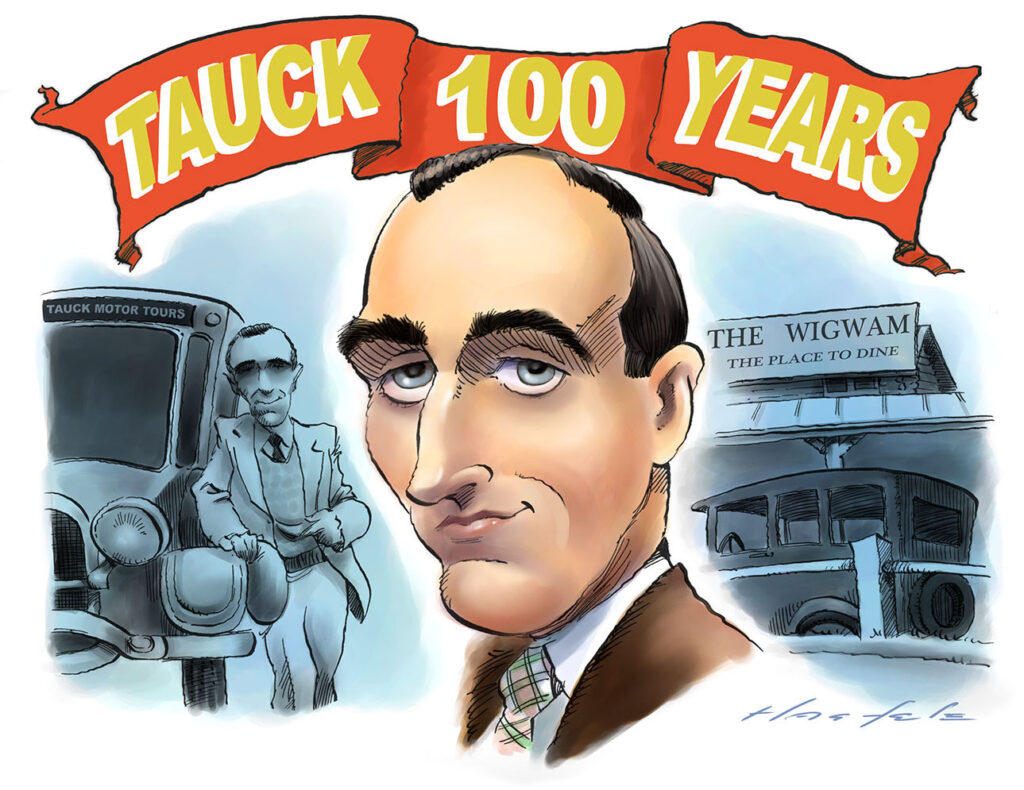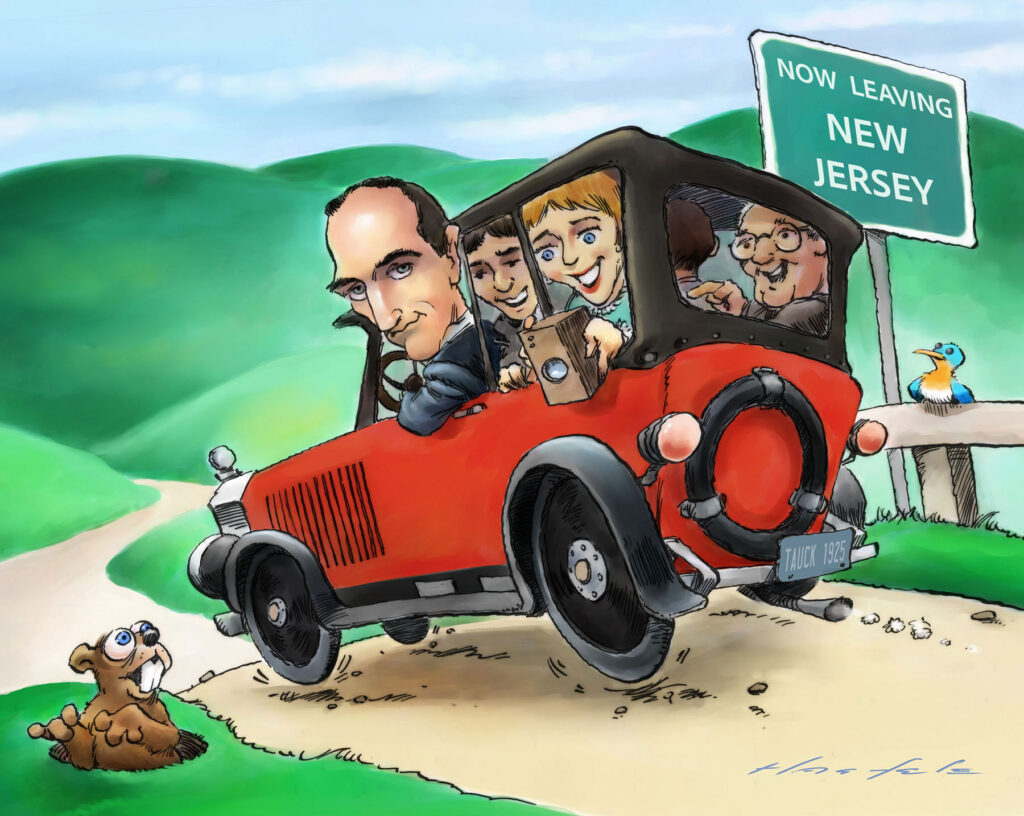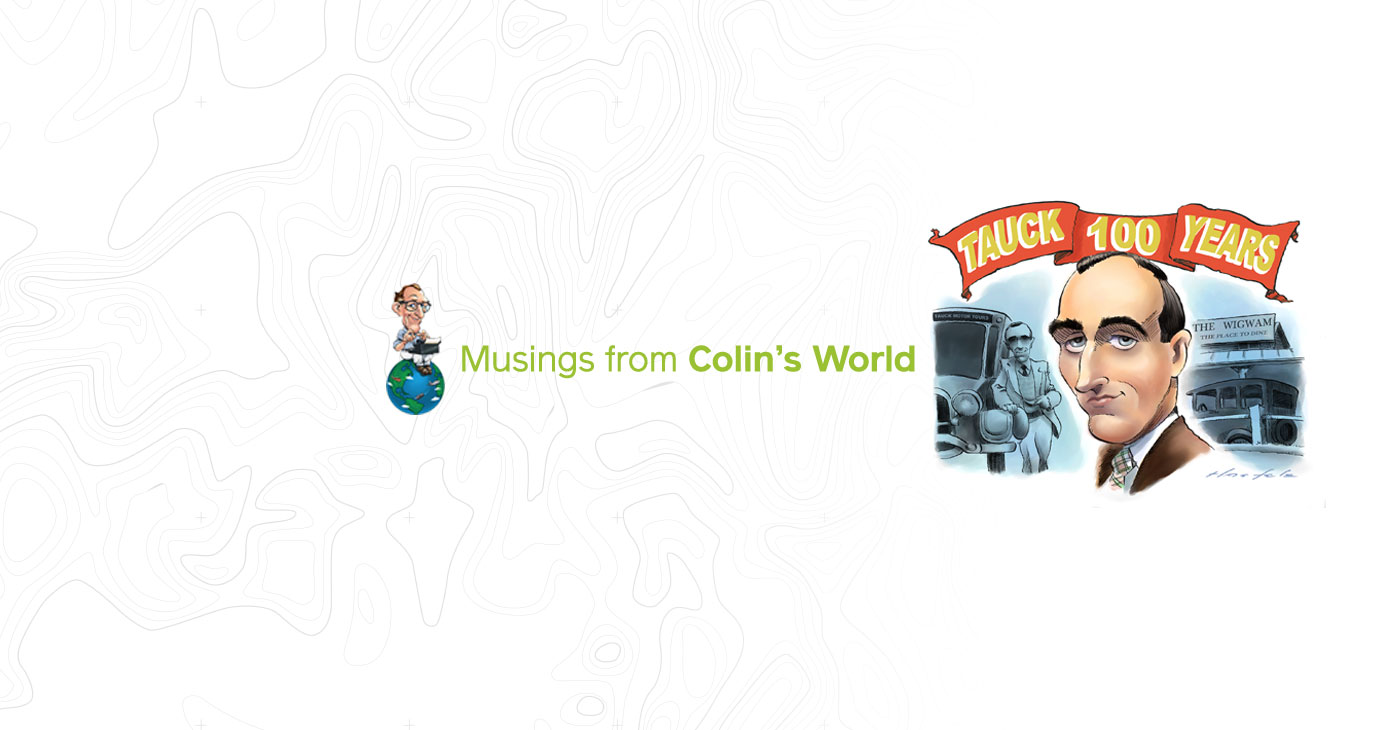

As this year marks the 100-year anniversary of Tauck, I’ve been reflecting on that history, and it truly is an amazing American story. The business has been hosting my columns on its website for 10 years, however I was a fan of Tauck
decades in the past, based on the work it does, and its unique contributions to the travel industry and to American life. All of it traces back to the origin story: a bank employee fired for spilling coins in an elevator shaft invented a much better coin tray, struck the road to offer it to banks, discovered the delights of the open roadway, then developed a company to share that experience.
The story has actually been told typically, and I won’t try to rehash it here, other than to state that the whole story of the business is embodied in that origin. It’s an example of how the foundation aspects of any business stay a part of its character permanently.
The majority of the fundamental elements of what Tauck has actually ended up being, a large global tour operation with hundreds of trips and cruises operating on any given day, can be seen in their nascent type in that start.
The initial paper ad that young Arthur Tauck ran in 1925 might still be viewed as the model of the service Tauck would become an international operation.
All I desire is a congenial celebration. 10 minutes after leaving Newark, we shall be just one delighted party, properly chaperoned, out for a genuine good time.
The business has actually come a long method from this, however it’s still a pretty good description of the essence of a Tauck journey.
It’s constantly remarkable to hypothesize whether a given success story would have taken place if any of the basic aspects had actually been various from what they were.
What if the teller had not spilled coins and gotten fired? But then, how many individuals in that situation would reverse and create a coin tray, and then take it on the roadway? It needed to be that person. There are numerous aspects because story, however I can name one that I believe was vital, which is New England.


Though Arthur Tauck Sr. was based in New Jersey, the territory he staked out to offer his coin trays, and that awakened in him to the pleasures of travel, was New England. Ultimately, the company relocated to Connecticut and made New England its home.
I’m not sure he could have begun his business out west where the spaces in between the towns can be large. It looks like it had to be New England.
This was not a concept cooked up in a drawing room. It took place on the road. You couldn’t travel that method in many other places in America. Arthur Tauck found not just escorted touring, but New England, which was so congenial to the whole project.
Growing up in Kansas, I came late to my gratitude of New England. As a young person imagining travel, I wished for more unique places. However when I got wed, my in-laws resided in Maine. That’s what drew me there. However what I found there was far beyond my conceptions.
In land-locked Kansas, when I listened longingly to the Beach Boys singing about beaches and surfing, New England was not what came to mind. From the stories I heard, such as the Pilgrims trying to make it through the winter, I thought of New England as a cold, prohibiting location. That was before I discovered the beaches in Maine.
It’s true, the New England winter seasons are harsh. But the summertimes are the opposite. The summer season sun is out from morning till late during the night. It can get actually hot, but it cools at night. The water at the beach never ever seems like warm bathwater. It’s always refreshing. And yes, you do see surfers.
As I compose this on the summertime solstice, the sunrise was at 5:03 a.m. and sundown was at 8:26. That’s when the sun passes the horizon, however the light lasts much longer. That’s the New England summer. It’s no less exhilarating inland, amongst the lakes, rivers and mountains of New Hampshire and Vermont.
New England was where English culture was planted in America and grew into a new hybrid culture. The colonies quickly established their own culture unique from that of England. Life in the New World meant making it through in a frontier. It was untamed, unforeseeable– an ocean away from the mother country.
Although New England was remote from England, it quickly became cosmopolitan since it was part of a transatlantic trade network that reached from the British Islands to the Caribbean, West Africa and Southern Europe. The seaside cities were hubs of culture shaped by international commerce.
Trade brought individuals from beyond Britain: enslaved Africans, Portuguese sailors and Dutch traders. The port cities varied and culturally vibrant. Rhode Island became a center of shipbuilding and a vital part of the wider Atlantic world.
The greatest center of commerce and culture was Boston, on the Shawmut Peninsula, the website of an Algonquian town, where the Massachusetts Bay Company initially established its colony in 1630. Two years later on Boston was named the capital of the Massachusetts Bay Colony.
According to its initial charter, Massachusetts extended deeply into what is now Brand-new Hampshire. In 1691 it was merged with the Plymouth Colony and Maine, so that Massachusetts was the majority of today’s New England. Various border modifications over the next 2 centuries gave parts of that area to New Hampshire, Rhode Island and Maine, squeezing Massachusetts to its present-day measurements.
From the late 1600s through the 1700s, Boston was the area’s biggest city and crucial port, a key node in the Atlantic trade network. It was a political, religious and cultural switchboard, laying much of the groundwork for the revolutionary eagerness.
You can sense the abundant history of New England as you drive its highways. You don’t need to go into museums to see it. Many homes, churches and city buildings survive from hundreds of years earlier.
The landscape is truly one of the most lovely worldwide, with abundant forests, hills and mountains, lakes and rivers, and back road under canopies of trees, not to mention the stunning and differed shorelines and overseas islands from Connecticut to Northern Maine. Undoubtedly that belonged to what captured Arthur Tauck.
We consider New England as a single entity, but the closer you look the more variation you discover within it.
Vermont, for example, is thought about part of New England, New Hampshire’s twin. However it’s a black sheep in the New England household due to the fact that it was never an English colony.
It was part of the French frontier, then was contested territory, between New York and New Hampshire. It was more akin to Canada than the United States. Its name originates from the French Verd Mont, or “Green Mountain.”
In 1777, during the American Revolution, Vermont declared itself an independent republic. It had its own constitution, which banned slavery. It minted its own currency, and flirted with the concept of joining the British Empire by means of Quebec before signing up with the United States as the 14th state in 1791.
You can still feel that independent spirit in Vermont today. That’s part of what I enjoy about it. In New Hampshire, the license plates state, “Live Free or Pass Away,” however Vermont seems even more stubbornly independent than New Hampshire. It’s all part of the complex cultural tapestry of New England.
In some places you attempt to do as much as you can in one go to. Other locations you return again and again. You witness the altering seasons and times there, and nurture a sense of connection that reassures you that some things in life endure. New England has actually been that for me.
New England was the location that influenced Arthur Tauck Sr. to start a visiting business in 1925. The character of both the company and the area were crystallized in their origins.
Tauck has been among the significant creators of the modern-day travel market, and as an enthusiast of travel I feel an unique sense of thankfulness to New England for its part in the story.
And there is always more to find there. I have just started.
Your modest press reporter,
A. Colin Treadwell
